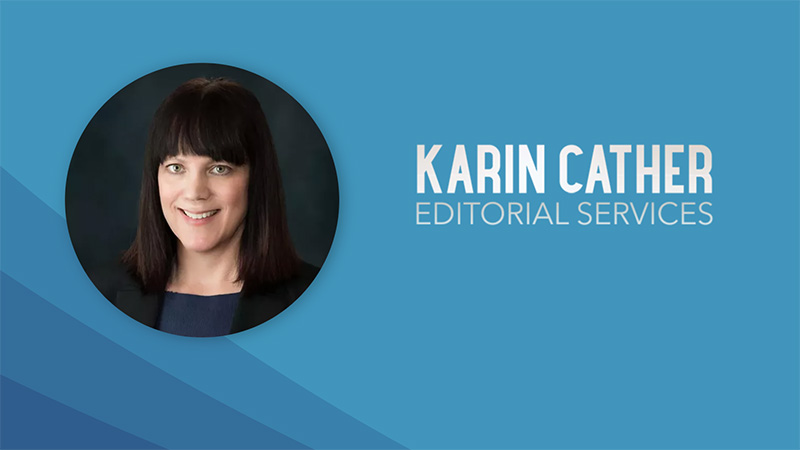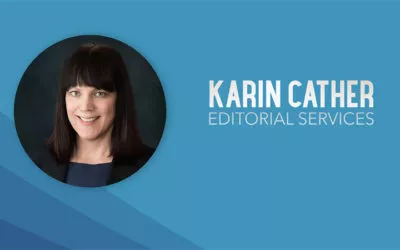Last month, Rich Adin wrote about the value of the editing profession—specifically in the context of how much editors should get paid.[1] He gives eight reasons in two articles for why editing is undervalued. Here are four of those reasons:
1. Few editors know their required effective hourly rate.
2. Our profession has failed to convince “clients” of editing’s value.
3. The market views us as low-level professionals who provide an unnecessary service.
4. It is too easy to open an editorial business.
The discussion of fees is not a new discussion. For example, Editors Canada has a page on the issue of fees, as does the Editorial Freelancers Association. But the idea that editors don’t really deserve to be paid very much tends to come from potential clients who don’t know what editors do or what it takes to be one, and from editors who don’t know how to market themselves.[2]
The fourth item in Rich Adin’s list deserves our attention. We editors should consider a universal certification requirement. Specifically, editors should have to take and pass a certification test before we are allowed[3] to call ourselves editors. In later blog post, I will make content suggestions. Today, I set out the reasoning.
It’s a problem that anyone can say they’re an editor. It’s a problem for us because it affects the credibility of the profession and it’s a problem for the consumer who doesn’t know whether their editor has the education, training, or proper experience to be an editor. It is as if, for your divorce case, you could either hire a law school graduate with a law license or a person with an associate’s degree in marketing, a law book, and an Internet browser. And so why are we editors surprised that clients think it’s okay to, say, offer us $350 to edit an entire textbook or $11 an hour to edit an 80,000-word novel? And why do so many authors have horror stories about terrible editors?
It’s true that there are several editors associations that have certification exams and standards of practice—for example, Editors Canada, the Board of Editors in the Life Sciences, the American Medical Writers Association and the Society for Editors and Proofreaders.[4] But, as of this writing, an editor can’t be certified by any of these associations until after they’ve been practicing for a period of years, which to me has it backwards. An editor should begin their career with enough knowledge to be certified.
I’m going to stop here and distinguish between certification, where an entity makes you pass a test and then says you’re a member and that you can say you’re one of them, and licensure, which involves state oversight. Licensed professionals have to go to school and get a specific degree; and then, before they can even practice, they have to pass a state licensing exam.
Professions that require licenses are regulated by mandatory state-run professional associations, which means that if the professional does their job badly enough that they cause harm, they can lose the ability to practice—and the sanction for doing it anyway is jail. Licensed professions are regulated professions, with ethical codes, professional standards, and requirements for continuing education. The requirement of both licensure and certification grants a legitimacy to those professions that the editing profession is missing, and those requirements protect the consumer. In the case of some kinds of editing, those requirements would also protect the public.[5]
People might say that of course we should license dog groomers and nail salons and not editors because editing isn’t really an essential service and, besides, nothing will go wrong if an editor does a terrible job; in contrast, if the land surveyor commits malpractice, they could cost people lots of money. But the lawyer who advises you on how to maintain your intellectual property rights to a font you designed isn’t necessarily going to cost you your liberty if they commit malpractice; in contrast, editors who do a bad job can cause a lot of damage.
Let’s start with the most benign worst-case scenario: An incompetent editor does a terrible job on what was supposed to be a substantive copyedit of a 100,000-word novel. The client paid $x,000, but because of the editor’s terrible job, the novel is a mess. Before the bad editor got their mitts on it, the book needed the attention of an editor; now, it’s a disaster. And the author has spent months or years writing it.
Let’s say that the editor introduced multiple errors into the manuscript, cut out the most interesting parts, unsplit all the infinitives, and called it a day. At the very least, the author has lost time and money. A good-enough editor would have introduced no errors, left the bloody infinitives alone, performed agreed-upon editing tasks, and handed the author a work that was a better version of the author’s work, and with the author’s voice preserved. The good-enough editor might also have flagged an epigram to remind the author to get permission to use it, or even suggested that the author run a particularly touchy paragraph by a defamation lawyer before publication.
What’s the worst thing an editor can do wrong? Get people killed. For example, they could change µg to a mg on a medicine dosage in a pharmacy textbook. Or contribute to a medication error in a medical journal article. What can a good-enough editor do? They can catch those mistakes in an author’s work.
People write content for many different reasons. From a purely financial standpoint, the least important motive for writing is for the love of it. Maybe the author is writing a memoir or a novel, and they’re clear that they only want their nearest and dearest to read it. But in that case, it’s likely that writing is an essential feature of that author’s sense of self. A professional who assists someone with an activity that the someone thinks makes them them deserves to be paid what they’re worth, but they need to know what they’re doing.
An author could be trying to write a groundbreaking novel, publish their research findings, create a textbook, or produce a creative new cookbook. It may be a means to career advancement. An editor can make the difference between publishing or not publishing the results of years of research. So a good-enough editor helps bring someone’s dreams to fruition, improves the quality of research (because clearer, more organized, free of cringeworthy spelling errors) or makes a product worth more money.
So it’s only fair that editors be required to demonstrate a minimal level of subject-matter expertise before beginning the practice of editing. Let’s not be unfair. I’m obviously not saying that no one is competent to edit unless they’ve taken and passed a certification test. That’s silly. And I’m not sure that there can be any one way to accumulate the necessary knowledge that could bring one to take the certification exam. Any good-enough editor should be able to pass a certification exam. I’m saying that it does the profession an injustice when we say that anyone should be able to say they are an editor, even though they have no education, training, or experience. Those who can’t edit won’t be able to pass the test. They won’t be able to say that they’re a certified editor. And that gives the client, the consumer, and the editor, essential information.
1. Rich Adin. An American Editor (blog), “The Business of Editing: 8 Reasons Why Editors Are Underpaid I,” April 20, 2016, https://americaneditor.wordpress.com/2016/04/20/the-business-of-editing-8-reasons-why-editors-are-underpaid-i/.
2. For professional advice on the business of freelancing, see Dr Freelance. Meanwhile, if contemplating this issue is making you cranky, then, after you finish this post, take a look at Harlan Ellison’s profane, delicious rant on paying writers, and the The Vendor Client relationship – in real world situations. I did watch an habitually angry author once tell others on a Facebook page that authors are not very likely to make back on the sales of their novels what they would pay us to edit them, and so we should certainly edit their work, but we should certainly do it for free, because that was only fair. I did privately think that I did give birth for free, but the obstetrician got paid. And somehow I was not disturbed by that.
3. We all agree that there are editors who should be certified without an exam based on factors like length of time in the profession and contributions to the field. And just as some states don’t require a lawyer to take a bar exam if they’re applying for admission from another state, I think we’d all expect that agencies would recognize each other’s certifications.
4. The Society of Editors and Proofreaders even has a complaints and appeals process.
5. By the way, such tests should certainly contain ethics questions. Do you make your dissertation-writers clear your involvement with their supervisors? If so, how? Do you have a separate bank account for advances and only transfer the money when you earn it? Can you recognize certain forms of plagiarism and are you clear on your obligations when you see it?






By the way, the Society for Editors and Proofreaders has a page on fees. It also has an ethical code, professional standards, and continuing education requirements. It has levels of membership, from entry level to Advanced Professional Membership (the latter of which is based on so much more than just an exam). It also recognizes the Editors Association of Canada CPE (which is seen as equivalent to SfEP Professional Membership) and BELS certification.
I think SfEP sounds like a group to model here in the US!
Good luck with that, Karin. I look forward to seeing what you think the content of such a certification test should look like.
The two main challenges I see are (1) the wide range of kinds of editing and kinds of materials that need editing and (2) the deep disagreements among seasoned, respected, passionate editors that bubble up daily about the best way to approach any given editing question. The occasions when general agreement (always short of full consensus) emerges are so rare that we remark upon them.
A broader issue is one I’ve seen played out in an unrelated field: By creating a de facto editing standard that encourages people to teach to the test, you encourage a kind of fossilization, a Thistlebottomism, that discourages people from expanding their understanding of the theoretical underpinnings of the field.
Don’t get me wrong. I’m sometimes appalled by things I see other editors say and do in the name of editing. So I understand your motivation and sympathize with it. I just think it’s going to be devilishly difficult to find a formulation that works.
Hi, Dick. I think a lot of seasoned editors echoed your concerns; they also thought that I was suggesting that seasoned editors had to be certified, which makes me think that the footnote where I talked about grandfather clauses should not have been a footnote. That being said, there is board certification of both doctors and lawyers, where those who have the requisite licensing to be doctors and lawyers also have to take a requisite exam in order to say they are certified criminal lawyers, say, or that they are a board certified cardiologist. I’ve not heard doctors or lawyers complain that they can’t get certified because they don’t share the same approaches as their colleagues. I think we’ll all agree that there are as many different kinds of doctors as there are editors, and that there are similar issues in terms of approach.
SfEP, AMWA, and Editors Canada/EAC already have certifications, and there are many universities that have certificate programs—including UC Berkeley Extension, where I got mine. UC Berkeley Extension grades on the strengths or weaknesses of queries; their substantive editing course was based on a mess of a document that they created for the course and which we, as students, had to turn into something readable by the end of the course. And they certainly had a rubric by which to grade our finished products. We also know that dissertation committees grant, or decline to grant, doctorates to PhD candidates, in topics like literature or history, which aren’t based on laboratory tests and so are subject to different approaches. While certain schools are known for varying approaches, can we really say that there is only one kind of history professor because you have to have a PhD in order to be a history professor?
Of course, I take the position that I do because editing is a real profession that needs to be treated like one, but also from the perspective of consumer protection.
Well argued, Karin. I agree with your reasoning look forward to reading your suggestions for certification content.
I recently finished a certificate in editing and feel more prepared, qualified, and confident in my abilities than before I took any courses or attended any editing conferences. Thing is, I was confident before I took any editing courses; a little learning taught me that a skill with spelling, grammar, usage, punctuation, sentence structure, and story structure are a good start, but they aren’t enough to make a good editor.
Since starting my path to professional editing, I have attended three professional conferences, taken half a dozen skill-building seminars, and generally associated with experienced editors wherever I can find them, online and in RL. And that has taught me that there are many routes to professional editing, and none is more “legitimate” than any other. Everyone starts from the same point.
It would be helpful to have a means of confirming baseline knowledge and competence among editorial professionals. It could help raise the profile of the profession. It could give clients a means of assessing editors they’re considering working with. It could help fellow editors do the same.
Would I pass your proposed certification exam, I wonder? 🙂
Wendy, I think you could probably teach a certification class. I think the biggest objection I’ve heard is that editing is subjective. But that can be said about any discipline. The fourth class at UC Berkeley Extension is a substantive editing class in which they give you a manuscript that is a mess and have you fix it, including obtaining photographs. Obviously, UC Berkeley thinks that there are enough rules to editing that they can teach a class in which the grade is based on how you reorganize a history book.
I’m jealous that you’ve attended three conferences! Were they all Editors’ Association of Canada/Editors Canada?
I certainly don’t think I could teach a certification class, but thank you for the vote of confidence!
My three editing conferences have been Editors Canada (June 2015), Northwest Independent Editors Guild (October 2015), and ACES (March/April 2016). Editors Canada 2016 is coming up in less than a month. Yay!
I attended the Surrey International Writer’s Conference in 2015, too. I usually do—it’s in my own back yard and it’s excellent—but last year I wore my editor hat and chose my sessions accordingly, so it was a slightly different, still stellar experience.
If there weren’t general precepts of editing, it would be impossible to teach the trade. But since it is being taught, there are clearly some basic competencies that can be measured and tested. The SFU program’s final project involves performing all four levels of editing (developmental, stylistic/line, copy, and proofreading) on a nonfiction manuscript. Sounds like the Berkeley course you describe, in intent at least.
That was a mean-spirited comment. My apologies. But at the very least we could say that, beyond the absolute basics of grammar and syntax, editing is a highly subjective affair.
It was more than mean-spirited. But it made my argument for me. You pointed out style problems with two sentences, a phrase, and my use of singular they as evidence that my entire 1,530-word argument was invalid.
I’ll start with your four objections to my 1,530-word blog post. The first one: You suggested that Do you make your dissertation-writers clear your involvement with their supervisors?” might be unclear. Does it need to be rewritten? Well, if you were editing my post for real and suggested a revision, or put a query that said, Possibly unclear. Consider revising I’d have considered revising the sentence. Maybe, in context, it works fine. Maybe it caused enough readers to hesitate that it’s worth a revision. That’s subject matter for a good-enough editor. The singular they is correct without more, and as such is a style choice, and I use it on purpose. You called the phrase because clearer, more organized, free of cringeworthy spelling errors” “cringe-worthy English.” That is a matter of style, and of whether that register is appropriate for a blog post with this audience. I wouldn’t use it in a journal article or a trial brief, but those are more formal modes of communication. Then there’s this: “it’s likely that writing is a core feature of that author’s self-concept” would make a plain language editor tear her (not their) hair out. Well, no. But if you have a suggested revision, by all means suggest one.
The larger issues are the strength of your queries and the thinking behind them. I don’t know about you, but I’ve edited some academic pieces that were impenetrable before I edited them. But that was the writing. The thinking was sound. In one case, the research itself was positively thrilling. So, while we’ve all seen writing that is difficult because the ideas or story have no merit and the prose reflects that, I think most editors understand the distinction between the state of someone’s prose and the value of the content itself. Because those are two different things, yes?
I think we’re also clear, aren’t we, that even editors need editors? Amy Einsohn had editors for The Copyeditor’s Handbook.
I’m also assuming that your queries to your clients don’t look like your comments to me. For some authors, it is positively nerve-racking to turn over their work to an editor and wait for the comments, even when the authors have been published before. Because whether someone can write well or not is, for some of us, the equivalent of how we look in a bathing suit. Now imagine walking into a room with critics who have to decide whether that bathing suit fits, and how one looks in it. I think it’s important to take that sense of vulnerability into account in queries, too.
Students write queries in the classes that form the Professional Sequence in Editing from the University of California Berkeley Extension, and those queries are graded. To an extent, the professional response to a query is subjective, but then, a professional’s response to a journal article and a reader’s response to a book can be subjective, too. But their responses are based on tangible elements, and those tangible elements can be taught, and learned.
Peace.
Karin
I do like this idea. I think the implementation is the hard part. The certifying body would have to be comparable to those that award certifications today for editing in other countries, but I don’t think one exists in this country at present with the heft or the inclination to get involved in certification.
I think that there are editors who are working to get that off the ground, here. From what I’ve heard, SfEP has a good model, and Editors Canada does, too.
Also, how do you get a picture in the blank spot next to your name?